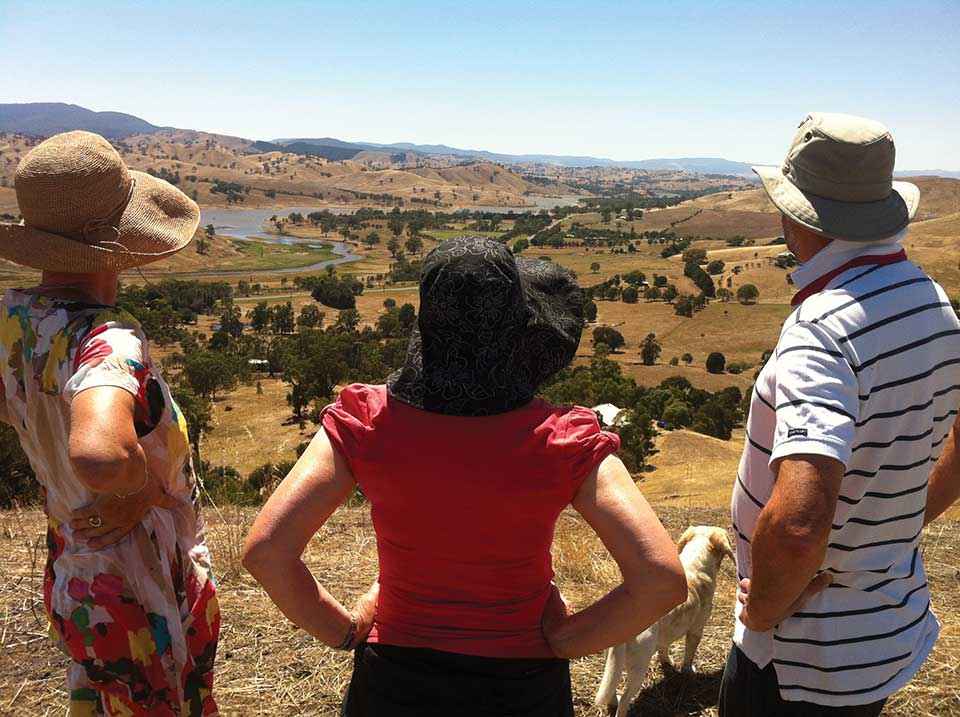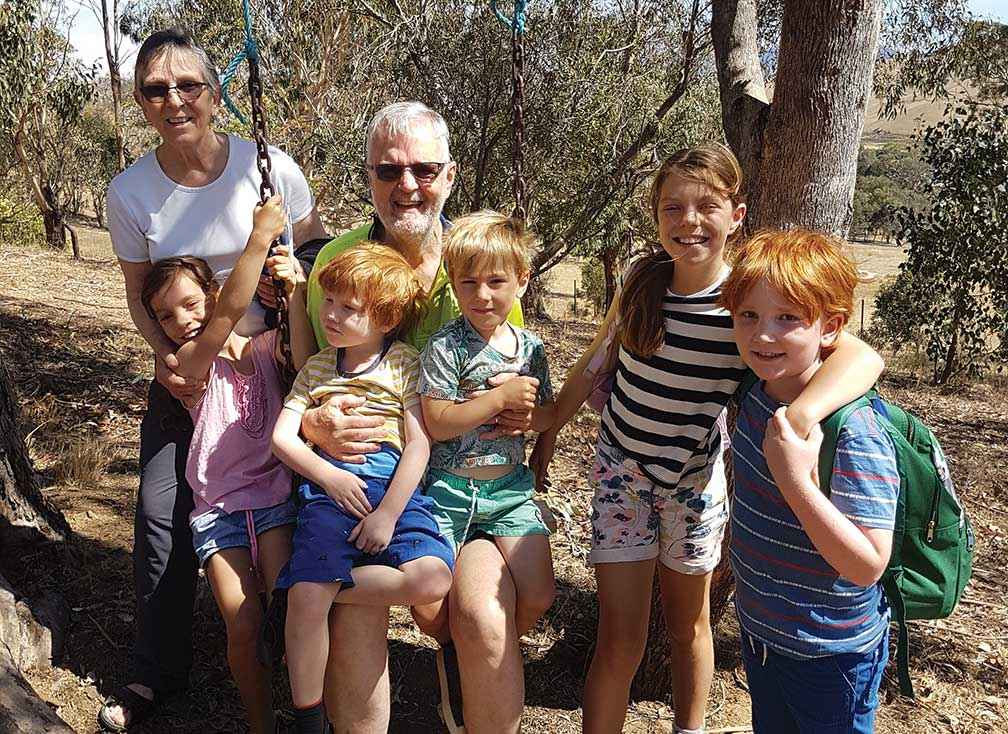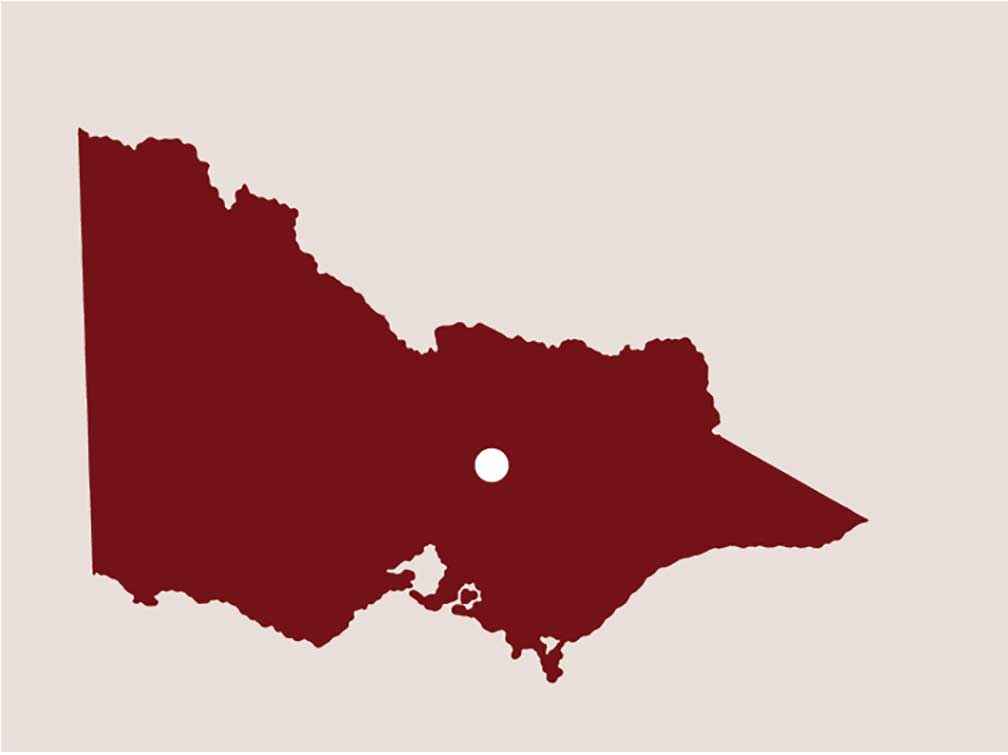Victorian Landcare Magazine - Winter 2019, Issue 75

In 1979 my husband and I purchased 17 acres of degraded farmland at Boonie Doon in north east Victoria, with a view to building a mud brick home. We were interested and involved in environmental issues, but had no building or land management experience.
We were fortunate to be befriended by a stalwart of the local Ancona Valley Landcare Group. Benefitting from his expertise in land management and also with tools, local community connections and technology, helped us to build our home and plant more than 1000 indigenous trees. The planting has completely eradicated land slippages and erosion problems and has brought back more than 36 species of birds and lots of other native wildlife to the property.
The health benefits of our mud brick home building and tree planting adventure were not limited to the environment. We gained high levels of physical fitness as we clambered over our steeply sloping block to plant the trees. The friends who came to help us had fun and benefitted from social connectedness – a key factor in human health. Our children became immersed in the outdoors – wandering
the hillsides, visiting the creek and learning to know and love the environment.
Years later, as an academic in the School of Health and Social Development at Deakin University, I led a team collating evidence about the human health benefits of contact with nature for Parks Victoria. The research findings confirmed my intuitive understanding that human contact with nature is beneficial to health and well-being. In fact, when people work to sustain the natural environment they experience enhanced physical, mental, social and spiritual health.

Above: Mardie and Ron Townsend enjoy sharing time in the bush with their grandchildren.
A 2005 study that I led in Victoria explored the health, well-being, and social capital benefits gained by community members who are involved in the management of land for conservation in six rural communities. A total of 102 people participated in the study (64 males and 38 females). The 51 members of a community-based land management
group were matched (by age and gender) with 51 controls, many of whom were involved in volunteering but not in the natural environment.
The members of the land management groups rated their general health higher, reported visiting the doctor less often, felt safer in the local community, and utilised the skills that they had acquired in their lifetime more frequently than the control participants.
Some UK research that I worked on studied 88 people volunteering regularly in a range of places from scenic natural landscapes to urban green spaces in northern England and southern Scotland. We used an Emotional State Scale to identify changes across twelve
emotional parameters: happy/unhappy, bored/interested, worthy/worthless, helpless/in control, satisfied/dissatisfied, irritated/calm, incapable/skilful, withdrawn/talkative, in pain/pain free, worried/relaxed, healthy/unhealthy and trusting/cautious.
The volunteers recorded feeling more positive across all parameters except one – pain. Subsequent interviews found that, while some volunteers experienced aching muscles and potentially some stiffness after undertaking their activities, most stated that this was a positive rather than a negative issue as it reminded them that they had been physically active and gave them a sense of achievement.
A more recent study in the UK undertaken in 2014–2015 compared the well-being experienced by those involved in environmental volunteering with the well-being experienced by participants in other types of nature-based activities and volunteering. The study involved people participating in biodiversity monitoring, practical conservation volunteering, walking, and students conducting fieldwork as part of their university course.
A peer-reviewed journal article reporting on the research stated: “Environmental volunteering significantly improved positive elements and significantly decreased negative elements of participants’ immediate well-being, and it did so more than walking or student fieldwork.”
Perhaps one of the reasons that environmental volunteering and involvement in environmental management through groups such as Landcare is more beneficial than simply being in nature is that the results of such activities are long lasting. We can keep returning to these places and see the results of our efforts, and so our feelings of satisfaction, delight and pride are re-experienced.
This is certainly true for my family. Each time we visit our country home we delight in the new self-sown native trees that are springing up. We celebrate the new species of birds that our bird-watching son identifies. We view the stability of our hillsides compared with those nearby with satisfaction.
In 2017 we were able to share the delight of seeing a koala in our trees for the first time with our grandchildren. Our Landcare friend’s legacy has been life changing. It has provided us, our children, grandchildren and the numerous friends who have visited our place with the opportunity to re-engage with nature in an active and constructive way. It has undoubtedly improved our health and the health of the land entrusted to our care.
Dr Mardie Townsend is part of the Health, Nature and Sustainability Research Group at Deakin University.
For more information email mardie.townsend@deakin.edu.au

Above: Bonnie Doon